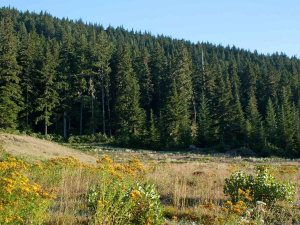Subsidies keeping wind, solar generation viable
OPINION: I recently wrote an open letter to the Prime Minister because at a recent Federated Farmers meeting, Chris Luxon told me wind and solar generation is not subsidised.
 Founder and chief executive of Tāmata Hauhā, Blair Jamieson says he is concerned that the Government’s attempts to change the ETS will take forestry off the table.
Founder and chief executive of Tāmata Hauhā, Blair Jamieson says he is concerned that the Government’s attempts to change the ETS will take forestry off the table.
Land restoration and investment company, Tāmata Hauhā, is calling on the Government to stop its review of the Emissions Trading Scheme (ETS).
The company claims the review is significantly undermining confidence in the role forestry must play in fighting climate change.
Founder and chief executive of Tāmata Hauhā, Blair Jamieson says he is concerned that the Government’s attempts to change the ETS will take forestry off the table and significantly slow New Zealand’s progress towards reducing the impact of climate change.
“This constant tampering stems from a huge misconception that we have an oversupply of forestry which enables big polluters to purchase cheap offsets to reduce their emissions,” Jamieson says.
“Forestry isn’t the issue,” he says. “The problem is the quantity of fabricated credits the Government gives away or sells to emitters.”
Jamieson says that unlike credits that are sequestered from forestry and that genuinely offset emissions, these credits are not real.
“We understand the Government is set to issue 380 million tonnes of these fabricated carbon credits by 2034 – and because these credits are detached from any genuine sequestration and fail to offset any emissions, they don’t help address our climate emergency,” he says.
“Additionally, only 9% of the ETS is permanent forestry, the remainder is production.”
Jamieson says that to create a sustainable future, there needs to be an exploration of how forestry can contribute to the solution.
“We have a collective responsibility to safeguard the well-being of our planet and future generations,” he says. “We’re urging all stakeholders, including government, industries, and communities to work together to have a mature conversation about recognising and harnessing the potential of forestry as a climate change solution to achieve a sustainable future.”
Former Fonterra executive Alex Turnbull has been appointed CEO to lead all five Yili Oceania Business Division companies in New Zealand.
Fonterra executive René Dedoncker is leaving the co-operative later this year to lead Australian agribusiness Elders.
Alliance Group and the Southland Stags rugby team have joined forces in a partnership that will see the the meat co-operative's farmgate brand feature on players' team kits and replica jerseys.
Fonterra's plan to expand its organic programme to the South Island is being well received by farmers, the co-op says.
Voting has started for the renewal of DairyNZ's milksolids levy.
The most successful catchment groups in NZ are those that have 'a source to sea' approach.

OPINION: Here w go: the election date is set for November 7 and the politicians are out of the gate…
OPINION: ECan data was released a few days ago showing Canterbury farmers have made “giant strides on environmental performance”.